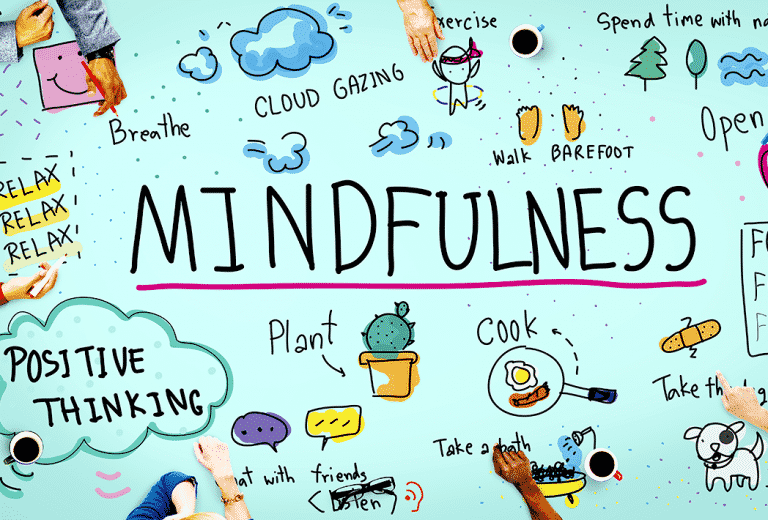How Mindfulness Techniques Work For Relapse Prevention
Mindfulness techniques are used for mental illnesses like anxiety and depression, but they also work in addiction recovery treatment for relapse prevention. While drug and alcohol addiction is rampant everywhere, it’s crucial to understand that no two recovery journeys are ever the same. There are a wide variety of treatment methods available to help individuals safely achieve sobriety. In this article, we’ll explore one such type of technique: mindfulness-based relapse prevention (MBRP).
Arista Recovery is a leading addiction recovery center in the Midwest that provides comprehensive care to help as many patients as possible achieve sobriety. We offer a broad range of addiction treatment programs so you can receive the right care for your unique recovery needs at our full continuum addiction treatment center. Contact us today to learn how you can live a happier, healthier life.
7 Mindfulness Techniques For Relapse Prevention
Mindfulness techniques can be a highly effective way to support long-term sobriety. Below are several techniques you can use to reduce your risk of relapse.
-
Practice Gratitude
Practicing gratitude daily will help remind yourself of how far you’ve come on your road to recovery. Addiction recovery is a life-long journey that can be filled with many ups and downs. Practicing gratitude will give you time to reflect on how much you’ve grown which can oftentimes show yourself how strong you’ve become in changing your life for the better.
-
Mindfulness Techniques: Breathing
Breathing techniques are another mindfulness and relapse prevention technique that can help calm your mind and body while reducing your risk of relapse. Breathwork can help ground your body. Plus, it’s a practical thing you can do whenever you are going through a difficult moment or are exposed to triggers that could jeopardize your sobriety.
-
Mindfulness Techniques: Journaling
Journaling is another highly effective mindfulness-based relapse prevention technique you can use. Journaling allows you to put all your thoughts and feelings down on paper. This allows you to effectively be able to process and be aware of those emotions, rather than limiting those thoughts ruminating in your mind.
-
Mindfulness Techniques: Meditation
Mindfulness meditation is another way you can ground yourself and your body. Meditation has long been an effective practice to help people experience the present moment. You can use meditation to ground yourself and your emotions, which can be highly effective if you are wrestling with triggers or feelings of wanting to abuse drugs or alcohol.
-
Mindfulness Techniques: Eating
You can even practice mindfulness as you eat! Mindfulness eating is another technique that gives you the opportunity to settle into the present moment and ground yourself and your body. To practice this technique, simply become conscious of what you are eating while you are eating it. Take time to pay attention to its taste, smell, and texture.
-
Guided Imagery
Guided imagery or visualization is another technique where you imagine certain images to help create a feeling in your body. Guided imagery draws from the mind-body connection: what you think can impact how your body feels. For example, while facing stress, if you think of a calm garden or quiet space in nature and truly immerse yourself in this mental image, your thoughts will be able to calm your body and thus reduce your risk of turning to drugs or alcohol to relieve your negative emotions.
-
Mindfulness Techniques: Walking
Finally, mindful walking is another technique you can use to become more grounded and calm while also reducing your risk of relapsing. As you go on a walk, become aware of movement and your present surroundings, rather than letting your thoughts and stressors consume you. Mindful walking can be a great form of exercise and a stress reliever.
All in all, mindfulness-based relapse prevention techniques are simple yet highly effective ways you can ground your mind and body. Oftentimes, people relapse because they are experiencing triggers or feelings of stress, pain, or loneliness that they don’t know how to deal with all on their own. MBRP techniques allow you to effectively cope with these negative feelings in a healthy manner, rather than jeopardizing your sobriety journey.
Help Is Available
As you can see, mindfulness-based relapse prevention techniques can be a great way to help support your sobriety journey long-term. Something as simple as practicing gratitude daily or implementing mindfulness meditation into your daily routine can go a long way in supporting your recovery journey.
At our drug rehab in Kansas, we’re here to help you every step of the way to lead a happier and healthier quality of life. Whether you’re just starting your recovery journey, or looking for support to maintain your sobriety, we’re here to help. Contact us today to learn more about how we can help you on your road to recovery.
More Articles To Read About Recovery
Mindfulness and Faith For Effective Meditation
Why You Should Practice Mindfulness
4 Reasons Mindfulness Works In Recovery
Alcohol And Women: Addiction Is Growing
5 Evidence Based Therapies You Need





















